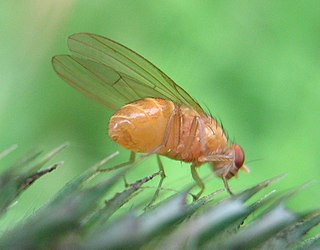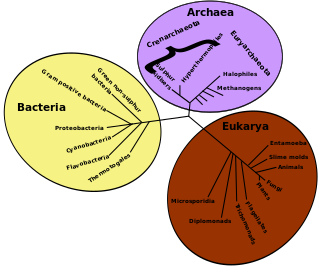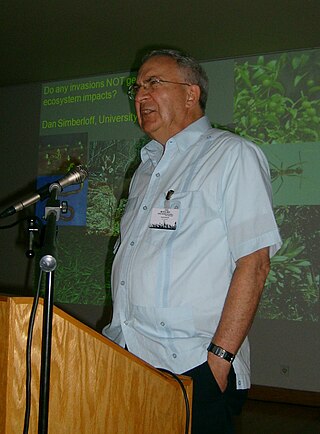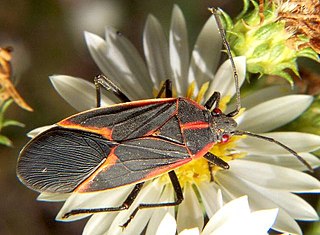
Biology – The natural science that studies life. Areas of focus include structure, function, growth, origin, evolution, distribution, and taxonomy.

Theoretical ecology is the scientific discipline devoted to the study of ecological systems using theoretical methods such as simple conceptual models, mathematical models, computational simulations, and advanced data analysis. Effective models improve understanding of the natural world by revealing how the dynamics of species populations are often based on fundamental biological conditions and processes. Further, the field aims to unify a diverse range of empirical observations by assuming that common, mechanistic processes generate observable phenomena across species and ecological environments. Based on biologically realistic assumptions, theoretical ecologists are able to uncover novel, non-intuitive insights about natural processes. Theoretical results are often verified by empirical and observational studies, revealing the power of theoretical methods in both predicting and understanding the noisy, diverse biological world.
Autecology is an approach in ecology that seeks to explain the distribution and abundance of species by studying interactions of individual organisms with their environments. An autecological approach differs from ecosystem ecology, community ecology (synecology) and population ecology (demecology) by greater recognition of the species-specific adaptations of individual animals, plants or other organisms, and of environmental over density-dependent influences on species distributions. Autecological theory relates the species-specific requirements and environmental tolerances of individuals to the geographic distribution of the species, with individuals tracking suitable conditions, having the capacity for migration at at least one stage in their life cycles. Autecology has a strong grounding in evolutionary theory, including the theory of punctuated equilibrium and the recognition concept of species.

Evolutionary biology is the subfield of biology that studies the evolutionary processes that produced the diversity of life on Earth. It is also defined as the study of the history of life forms on Earth. Evolution holds that all species are related and gradually change over generations. In a population, the genetic variations affect the phenotypes of an organism. These changes in the phenotypes will be an advantage to some organisms, which will then be passed on to their offspring. Some examples of evolution in species over many generations are the peppered moth and flightless birds. In the 1930s, the discipline of evolutionary biology emerged through what Julian Huxley called the modern synthesis of understanding, from previously unrelated fields of biological research, such as genetics and ecology, systematics, and paleontology.

This is a list of topics in evolutionary biology.
Professor Geoffrey Alan Parker FRS is an emeritus professor of biology at the University of Liverpool and the 2008 recipient of the Darwin Medal. Parker has been called “the professional’s professional”.

Evolutionary ecology lies at the intersection of ecology and evolutionary biology. It approaches the study of ecology in a way that explicitly considers the evolutionary histories of species and the interactions between them. Conversely, it can be seen as an approach to the study of evolution that incorporates an understanding of the interactions between the species under consideration. The main subfields of evolutionary ecology are life history evolution, sociobiology, the evolution of interspecific interactions and the evolution of biodiversity and of ecological communities.
Ecology is a new science and considered as an important branch of biological science, having only become prominent during the second half of the 20th century. Ecological thought is derivative of established currents in philosophy, particularly from ethics and politics.

Daniel Simberloff is an American biologist and ecologist. He earned his Ph.D. from Harvard University in 1969. He is currently Gore Hunger Professor of Environmental Science at the University of Tennessee, editor-in-chief of the journal Biological Invasions, and a member of the National Academy of Sciences.
Darwinian literary studies is a branch of literary criticism that studies literature in the context of evolution by means of natural selection, including gene-culture coevolution. It represents an emerging trend of neo-Darwinian thought in intellectual disciplines beyond those traditionally considered as evolutionary biology: evolutionary psychology, evolutionary anthropology, behavioral ecology, evolutionary developmental psychology, cognitive psychology, affective neuroscience, behavioural genetics, evolutionary epistemology, and other such disciplines.
The Red Queen's hypothesis is a hypothesis in evolutionary biology proposed in 1973, that species must constantly adapt, evolve, and proliferate in order to survive while pitted against ever-evolving opposing species. The hypothesis was intended to explain the constant (age-independent) extinction probability as observed in the paleontological record caused by co-evolution between competing species; however, it has also been suggested that the Red Queen hypothesis explains the advantage of sexual reproduction at the level of individuals, and the positive correlation between speciation and extinction rates in most higher taxa.

Serinethinae is a subfamily of the hemipteran family Rhopalidae, sometimes known as soapberry bugs. They are brightly colored seed-eaters, comprising three genera and about sixty-five species. These bugs are specialists on plants in the soapberry family (Sapindaceae), which includes maples, balloon vines, and soapberry trees, among others. Seeds of the plants are the main resource used by adults for reproduction and nymphs for growth and development. Their diversity is the result of an adaptive radiation on these plants, who have co-evolved defenses such as having their seeds contain cyanide, fly out, or be contained in hallow chambers.

Jadera haematoloma, the red-shouldered bug, goldenrain-tree bug or soapberry bug is a species of true bug that lives throughout the United States and south to northern South America. It feeds on seeds within the soapberry plant family, Sapindaceae, and is known to rapidly adapt to feeding on particular hosts. The species is often confused with boxelder bugs and lovebugs.

The Theory of Island Biogeography is a 1967 book by the ecologist Robert MacArthur and the biologist Edward O. Wilson. It is widely regarded as a seminal work in island biogeography and ecology. The Princeton University Press reprinted the book in 2001 as a part of the "Princeton Landmarks in Biology" series. The book popularized the theory that insular biota maintain a dynamic equilibrium between immigration and extinction rates. The book also popularized the concepts and terminology of r/K selection theory.

Leptocoris is the largest genus of bugs in the subfamily Serinethinae. Species in this genus are distributed throughout Africa, South Asia, and Oceania and are thought to have originated in Africa, where the greatest diversity of Leptocoris species are found.

Rosemary Gillespie is an evolutionary biologist and professor of Environmental Science, Policy & Management, Division of Insect Biology at the University of California, Berkeley. She was the President of the American Genetics Association in 2018 and was previously President of the International Biogeography Society 2013–2015. From 2011 to 2013 she had served at the president of the American Arachnological Society. As of 2020 she is the faculty director of the Essig Museum of Entomology and a Professor and Schlinger Chair in systematic entomology at the University of California, Berkeley. Gillespie is known for her work on the evolution of communities on hotspot archipelagoes.

Judith (Judy) H. Myers is a Canadian-American ecologist. In 2014, she was elected president of the Canadian Society for Ecology and Evolution, and served in that role until 2016. Professor Myers is well known for her decades-long research into plant-animal-microbe interactions, including insect pest outbreaks, viral pathogens of insects, and pioneering work on biological control of insects and plants, particularly invasive species. Throughout her career she has advocated strongly for both the public understanding of science and for increasing the number of women in the STEM subjects: Science, Technology, Engineering, and Mathematics.
Ruth Geyer Shaw is a professor and principal investigator in the Department of Ecology, Evolution and Behavior at the University of Minnesota. She studies the processes involved in genetic variation, specializing in plant population biology and evolutionary quantitative genetics. Her work is particularly relevant in studying the effects of stressors such as climate instability and population fragmentation on evolutionary change in populations. She has developed and applied new statistical methods for her field and is considered a leading population geneticist.
John Norton Thompson is an American evolutionary biologist. He is Jean H. Langeheim Professor of Plant Ecology and Evolution at the University of California, Santa Cruz.












